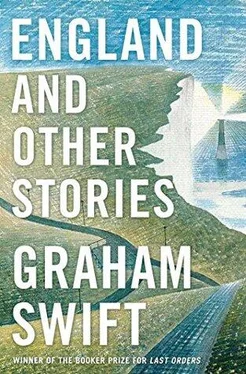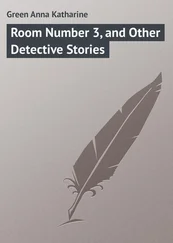But Patti just said, ‘You mean they’re not here, they’re not right below us? We’ve got the place to ourselves?’
And she grabbed my wrist and yanked me back into bed.
‘BUT YOU HAVE friends,’ I said.
I don’t know why I said it. It was somewhere between saying and asking.
‘Friends?’ he said.
‘Friends. You know.’
He was my last of the day. I’d already told Hassan to turn the sign on the door. I was tired, but sometimes the last of the day is different, if only because it’s the last. It was a little before seven, already dark.
I snipped away.
‘Friends,’ he said, as if he’d never heard the word before. Then he went silent. ‘I have meetings,’ he said.
Now it was my turn. ‘Meetings?’
‘Meetings. I know people and I meet them. People I’ve known for a long time, but I just meet them. Know what I mean? Time goes by, then we meet, for a drink or something. Then time goes by again. Is that having friends?’
I wasn’t sure now if he was saying or asking.
‘Well,’ I said.
Maybe what I’d meant by friends was no more than just that — what he’d just said. People you could talk to. People he could talk to.
‘Well,’ I said.
It’s not every day that one comes in and lets you know that since you did them last their mother has died. And who puts it this way: ‘That’s both of them. My dad last year, my mum last week.’
Well, that was certainly saying.
I’d never known, or I couldn’t remember, about his dad.
‘I didn’t know that,’ I said. ‘The two of them.’
And I’d never known till now the truth of this one’s situation. He didn’t have to say it, I didn’t have to ask. I saw it in his face in the mirror, in the way he looked at his face in the mirror.
‘Well it has to happen,’ I said, ‘sooner or later.’ I might have said, ‘When you get to our age,’ but I didn’t.
You see things in the way people look at their own faces. It’s not a thing they often do or even want to do, but in a barber’s shop there’s not much else to do. In a café people pay to sit and look out at the world going by. In a barber’s they pay to stare at their own faces, and you see what goes on when they do.
You don’t see much in the top of a head. Though sometimes I think: Right there beneath my fingers is their skull, their brain and every thought that’s in it.
What this one was telling me, by his look in the mirror, was that he’d lived with — lived for — his mum and his dad all his life. Some men are big children. That was about the whole of it. And he must have been past sixty. One of those big, hefty but soft types. What he was telling me was that he was all alone in the world.
I carried on snipping. What I thought was: Well, what can I do about it? I cut hair.
‘Still, it’s tough,’ I said. ‘How old — your mother?’
‘Eighty-three,’ he said.
‘Eighty-three,’ I said. ‘That’s not bad. Eighty-three’s not a bad age.’
Then after a silence I said, I don’t know why, ‘But you have friends.’
People to talk to, I meant, in your time of trouble. Everyone has friends. But he only had ‘meetings’ apparently.
‘Friends,’ he said, as if the word was strange. ‘I had friends when I was a kid. I mean a little kid. We hung around together, all the time. We were in and out of each other’s homes, each other’s lives. We never thought twice about it. That’s having friends.’
I snipped away. ‘Well that’s true enough,’ I said.
And how many times do I say that to a customer? ‘That’s true enough.’ It’s what you say. Whatever they say.
‘The friends we make when we’re young,’ I said, ‘they’re the ones that stick, they’re the ones that matter.’
That wasn’t quite what he’d said, or meant, and I knew it. It wasn’t quite what I meant either. I saw what he’d meant. I snipped away and looked at his hair, but I saw my friends, in Cyprus. In Ayios Nikolaos. All my nine-year-old, ten-year-old friends. I saw myself with them.
Maybe he knew that I hadn’t meant what I’d said. I’d said something everyone says, or likes to think.
He said, ‘It’s not the same, is it? Meeting people, seeing people, talking to them. It’s not the same as having friends.’
I moved the angle of his head. ‘That’s too hard,’ I said, ‘too hard.’ I felt something coming, something almost like anger. I pushed it back. I almost stopped snipping. ‘You’re asking too much,’ I said. ‘All due respect — to your mother. All due respect to your feelings. If you have people to see and talk to, then you have friends. If you have people, you have life.’
It was late, it was dark. It was the nearest I could get to a little philosophy. It’s what some people expect, sometimes, from a barber. A little philosophy. Especially a barber who’s turned sixty himself and who’s boss of his own shop (me and three juniors) and whose hair is crinkly grey. And I’m Greek too (or Cypriot) and we invented philosophy.
‘People,’ I said. ‘People are life.’
But what I thought was: You didn’t have to come and get your hair cut, did you, after your mum had just died? His hair wasn’t so long, it didn’t need a cut.
I put the scissors and comb in my top pocket and switched on the clippers so we couldn’t speak.
People think if you’re a barber then you have people, you have talk all the time, your whole day. The things you must hear, the stories, the things you must learn from all those people.
But the truth is I like to get away from people. I like it when it’s the end of the day. That’s why sometimes I’m different, I say things, with the last one. I get enough of people. And people are mainly just heads of hair, some of them not such nice heads of hair.
I thought: He wants it neat and tidy for the funeral.
My mother and father died years ago, in Cyprus. I hadn’t seen them anyway for quite a time. I hadn’t been back. As a matter of fact, my wife died too, just three years ago — my English wife, Irene. But we’d split up, we’d been split up for years. She drank all the time. She drank and she swore all the time.
Did I tell all my customers, when she died, when we split up? Did I gabble away to my customers? Did I close the shop?
I have two grown-up boys who are both in computers and are embarrassed by their father who’s just been a barber all his life.
I’m glad when I get home and can be alone.
Maybe he heard all this in my voice. Or he saw it in my face, in the mirror. There’s always a moment when you stand behind them, with your fingers either side of their head, holding it straight, and you both stare at the mirror as if for a photograph. As if the head you have in your hands might be something you’ve just made.
‘People are life,’ I said.
But he could see, in the mirror, that I was thinking: Don’t come to me at the end of the day for wise words or comfort, or friendship, if that’s what you want. What do you expect? That when I shut the shop in just a moment I’m going to say, ‘Why don’t you and I go for a drink? Why don’t we get to know each other better?’
I’m glad when I get home and can take a beer from the fridge.
One of those heavy but soft types who look as if they’ve been well fed by their mothers and will end up feeding them. A regular, it’s true. How many years? Always wanting me, the boss, to do him, none of the juniors. The years flash by if you count them in haircuts. I didn’t know his name. That’s not so strange, of course. No appointment system. No need to know their names — unless they tell you — or what they do for a living.
Читать дальше












